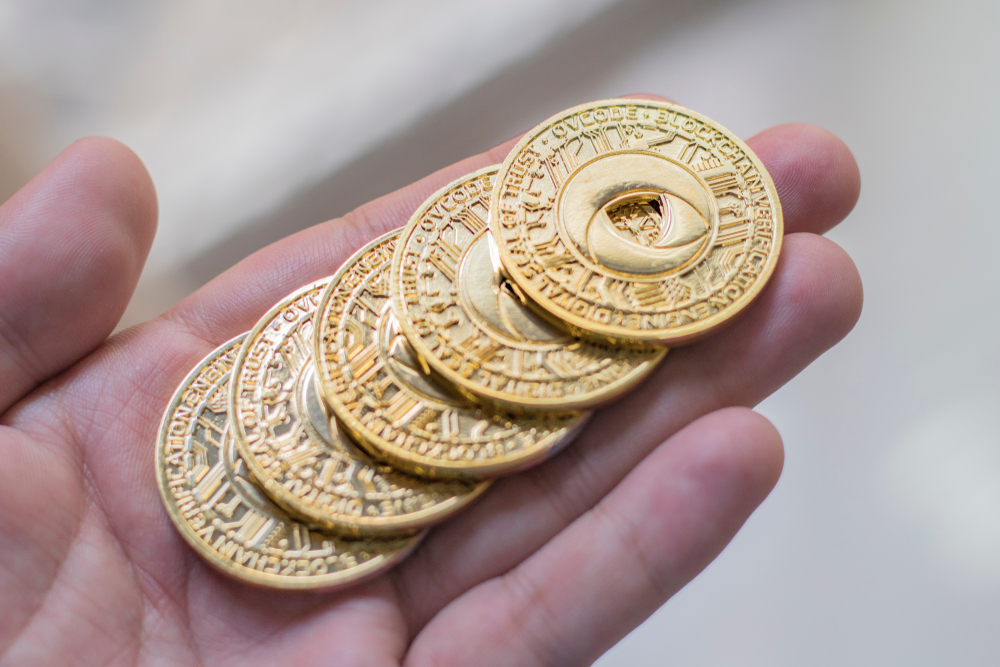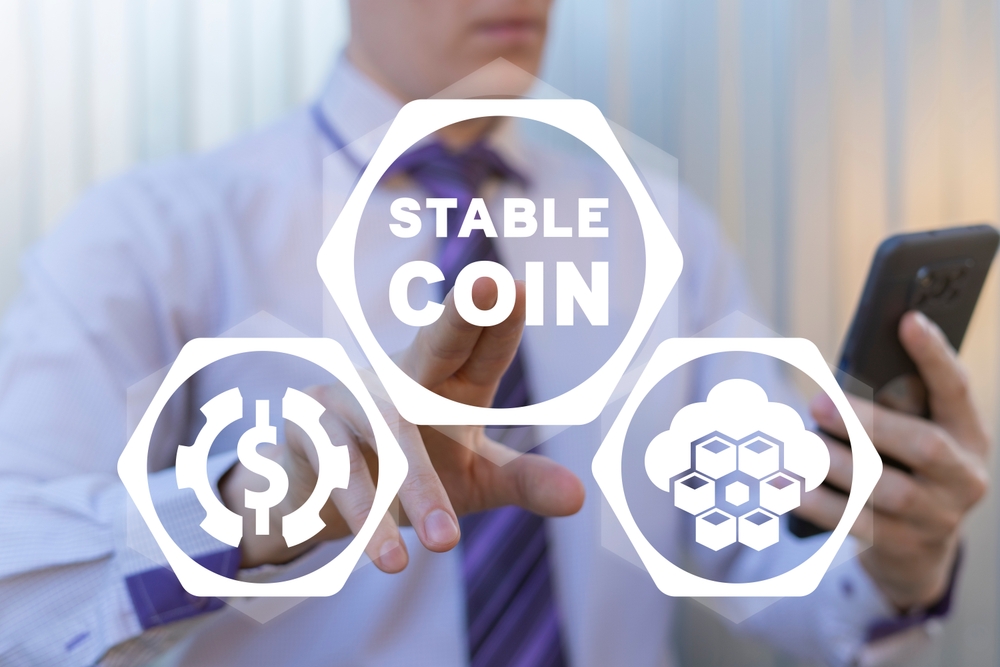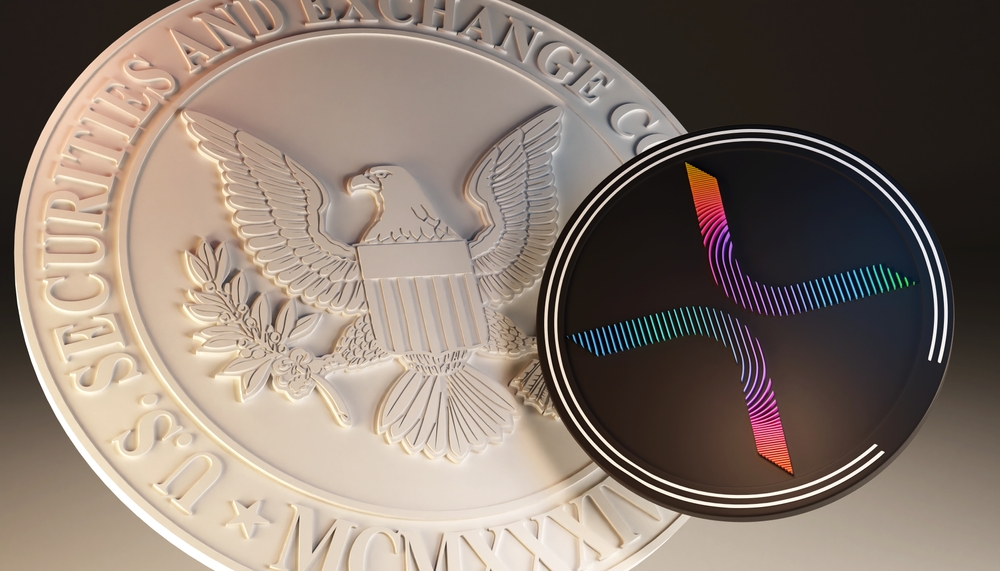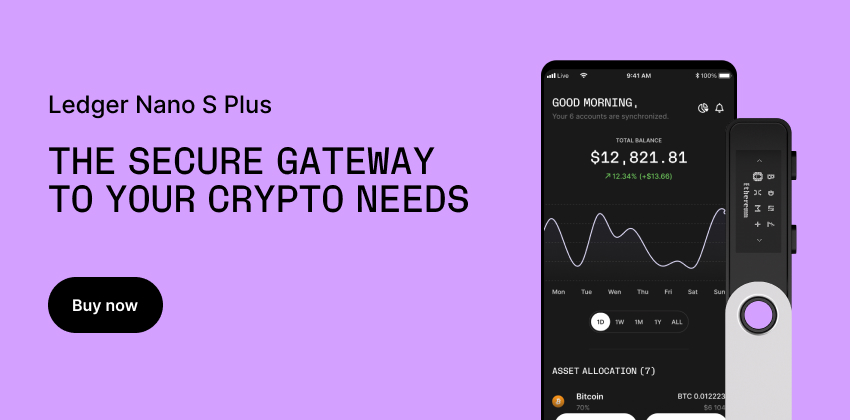Table of Contents
ToggleIntroduction
Chainlink has unveiled a new privacy suite for its platform, aiming to address key concerns in the blockchain industry. The Chainlink CCIP Private Transactions feature allows financial institutions to interact across blockchain networks while maintaining data privacy. This new technology enables banks and other financial entities to engage in blockchain activities without compromising sensitive information or regulatory compliance.
The privacy suite tackles a significant hurdle that has held back many traditional financial institutions from fully embracing blockchain technology. By providing secure cross-chain privacy, Chainlink opens up new possibilities for connecting private chains to the multi-chain economy. This development could lead to increased adoption of blockchain solutions in the financial sector.
Chainlink’s latest offering builds on its reputation as a leading decentralized oracle network. The company’s focus on privacy-enhancing technologies demonstrates its commitment to bridging the gap between traditional finance and the evolving world of blockchain and cryptocurrency.
Key Takeaways
- Chainlink’s new privacy suite allows secure cross-chain transactions for financial institutions
- The technology maintains data privacy while enabling blockchain interaction across networks
- This development could increase blockchain adoption in traditional finance sectors
Understanding Chainlink
Chainlink is a decentralized oracle network that connects blockchain-based smart contracts with real-world data. It acts as a bridge between on-chain and off-chain information.
The platform uses a network of nodes to fetch and verify external data. This ensures the accuracy and reliability of information used in smart contracts.
Chainlink’s oracles play a crucial role in expanding blockchain capabilities. They enable smart contracts to interact with:
- Price feeds
- Weather data
- Sports results
- Any other off-chain information
One of Chainlink’s key features is its ability to provide secure and private data to blockchain applications. This is particularly important for financial institutions and enterprises.
The platform supports various blockchain networks, making it versatile and widely adopted. It’s not limited to a single blockchain ecosystem.
Chainlink’s technology also extends to the NFT space. It can provide real-time data for NFT-based applications, enhancing their functionality and value.
By offering reliable oracle services, Chainlink helps reduce the risks associated with centralized data sources in decentralized systems.
Chainlink Technology and Services
Chainlink offers several key technologies and services to enhance blockchain capabilities. These solutions provide critical functions like asset verification, scalability improvements, and customizable off-chain computations.
Chainlink Proof of Reserve
Chainlink Proof of Reserve allows real-time verification of asset backing. It connects blockchain-based tokens to off-chain reserves. The system uses automated audits to confirm that tokenized assets have sufficient collateral.
Proof of Reserve helps prevent undercollateralized assets. It increases transparency for users and regulators. The technology works with various assets, including stablecoins and tokenized commodities.
Regular attestations provide up-to-date reserve information. This builds trust in the underlying value of digital assets. Chainlink’s decentralized oracle network ensures the integrity of these attestations.
Chainlink Scale Program
The Chainlink Scale Program aims to boost blockchain adoption. It offers reduced operating costs for high-potential projects. The program targets both new and existing chains.
Participants get access to Chainlink’s oracle services at discounted rates. This helps projects integrate reliable off-chain data and computations. The program supports various blockchain use cases.
Scale focuses on accelerating growth in decentralized ecosystems. It provides technical support and resources to participants. The program helps projects reach critical mass more quickly.
Chainlink Functions
Chainlink Functions is a serverless developer platform. It allows creation of custom, off-chain computations. These computations can be triggered by on-chain events.
Developers can write and deploy custom logic in JavaScript. Functions can access off-chain data and APIs. This expands the capabilities of smart contracts.
The platform supports complex operations not feasible on-chain. It maintains decentralization and security. Functions can automate tasks, process data, and interact with external systems.
Low-latency execution ensures timely updates to smart contracts. This enables more responsive and dynamic blockchain applications.
Securing Blockchain Transactions
Chainlink’s new privacy tools help protect sensitive financial data. These tools let banks and businesses use blockchains while keeping transactions private.
Blockchain Privacy Manager
The Blockchain Privacy Manager keeps transaction details hidden. It masks key info like amounts and account numbers. Only approved parties can see the full data.
This tool uses advanced encryption to secure transactions. Banks can set rules for who sees what data. For example, regulators might see totals but not individual transfers.
The Privacy Manager works with both public and private blockchains. This flexibility lets banks connect different systems securely.
Secure Cross-Chain Privacy
Moving money between blockchains often exposes data. Chainlink fixed this with Secure Cross-Chain Privacy.
This tool keeps transactions private as they move between chains. It uses special codes to verify transfers without revealing details. Banks can now link private chains to public ones safely.
Cross-chain privacy opens up new options for banks. They can use different blockchains for various tasks while keeping data secure.
End-to-End Privacy
End-to-End Privacy protects data at every step. It keeps transaction info safe from start to finish.
This system uses multiple layers of security. Encryption hides data in transit. Access controls limit who can see info. Audit trails track all activity.
Banks can now do complex deals across blockchains privately. This helps them meet strict finance rules. It also guards against data breaches and hacks.
Facilitating DeFi and Traditional Finance
Chainlink’s privacy suite bridges the gap between decentralized and traditional finance. It enables secure asset tokenization, fosters institutional adoption, and addresses key compliance needs.
Asset Tokenization and RWAs
Real-world assets (RWAs) are being tokenized on blockchain networks. This process creates digital representations of physical assets. Examples include:
- Real estate
- Commodities
- Artwork
Tokenization offers several benefits:
- Increased liquidity
- Fractional ownership
- Faster and cheaper transfers
Chainlink’s privacy features allow for secure tokenization of sensitive assets. This opens up new possibilities for investors and institutions.
Institutional Blockchain Adoption
Financial institutions are showing increased interest in blockchain technology. Chainlink’s privacy suite addresses key concerns:
- Data protection
- Transaction confidentiality
- Regulatory compliance
These features make blockchain more appealing to banks, insurance companies, and investment firms. Institutions can now:
- Explore DeFi opportunities
- Integrate blockchain with existing systems
- Offer new services to clients
The privacy suite helps bridge the gap between traditional finance and the blockchain world.
Compliance and Legal Requirements
Regulatory compliance is crucial for widespread adoption of blockchain in finance. Chainlink’s privacy features help meet important legal requirements:
- GDPR compliance
- Know Your Customer (KYC) rules
- Anti-Money Laundering (AML) regulations
The platform enables:
- Private transactions
- Secure data sharing
- Auditable records
This balance of privacy and transparency satisfies both regulators and users. It paves the way for compliant blockchain adoption in the financial sector.
Chainlink in the Banking Sector
Chainlink’s privacy solutions are gaining traction in the banking industry. Financial institutions are exploring ways to leverage blockchain technology while maintaining data confidentiality and regulatory compliance.
Collaborations with Financial Institutions
Chainlink has partnered with major banks to enhance privacy in blockchain transactions. The Australia and New Zealand Banking Group (ANZ Bank) is set to pilot Chainlink’s privacy-preserving capabilities. This collaboration aims to improve cross-chain settlement processes.
ANZ Bank’s involvement highlights the growing interest in blockchain among traditional financial institutions. Nigel Dobson, Banking Services Lead at ANZ, views Chainlink’s privacy features as a potential catalyst for wider institutional adoption of blockchain technology.
Chainlink’s Cross-Chain Interoperability Protocol (CCIP) allows banks to define privacy conditions for on-chain data. This keeps sensitive information private from third parties while enabling necessary regulatory oversight.
Project Guardian with the Monetary Authority of Singapore
The Monetary Authority of Singapore (MAS) has initiated Project Guardian to explore the potential of blockchain in finance. Chainlink plays a crucial role in this initiative by providing secure cross-chain communication.
Project Guardian aims to test the feasibility of tokenized assets and decentralized finance (DeFi) protocols. Chainlink’s involvement ensures that data transfers between different blockchain networks remain private and secure.
This collaboration demonstrates the growing interest of central banks in blockchain technology. It also showcases Chainlink’s ability to meet the stringent privacy and security requirements of financial regulators.
Interoperability Across Blockchain Networks
Blockchain interoperability enables seamless data and asset transfers between different networks. This capability enhances the functionality and reach of decentralized applications.
Cross-Chain Interoperability Protocol
The Cross-Chain Interoperability Protocol (CCIP) is a key innovation in blockchain connectivity. It allows for the secure movement of data and value across multiple blockchain networks.
CCIP enables developers to create applications that work on various chains. This flexibility is crucial for building robust Web3 ecosystems.
The protocol uses advanced security measures. These include risk management networks and decentralized oracle networks. Such features help protect cross-chain transactions from potential attacks.
CCIP supports both token transfers and messaging between chains. This dual functionality opens up new possibilities for cross-chain applications.
Web3 and Cross-Chain Settlement
Web3 applications benefit greatly from cross-chain settlement capabilities. These features allow users to interact with multiple blockchains seamlessly.
Cross-chain interoperability enhances the user experience in Web3 games. Players can use assets from one blockchain in games running on another.
Financial institutions can now engage in cross-chain transactions while meeting regulatory requirements. This is made possible by private cross-chain transactions.
Cross-chain settlement reduces friction in decentralized finance (DeFi). Users can access liquidity and assets across different blockchain networks more easily.
Developer Resources and Community Support
Chainlink offers a wealth of resources and support for developers working with the Platform Privacy Suite. These include hands-on learning opportunities and comprehensive technical documentation.
Tutorials and Workshops
Chainlink provides in-depth tutorials and workshops to help developers get started with the Platform Privacy Suite. These resources cover key topics like implementing privacy-preserving smart contracts and integrating secure oracles.
Developers can access step-by-step guides for common privacy use cases. These include protecting sensitive data in decentralized finance applications and ensuring confidentiality in supply chain management systems.
Interactive workshops allow developers to gain hands-on experience. Participants can work through real-world examples and receive guidance from Chainlink experts.
Documentation and Tools
Chainlink maintains extensive documentation for the Platform Privacy Suite. This includes API references, integration guides, and best practices for secure development.
The documentation covers core concepts like zero-knowledge proofs and secure multi-party computation. It also provides detailed explanations of the Suite’s privacy-enhancing features.
Developers can access a range of tools to streamline their workflow. These include software development kits, code libraries, and testing frameworks specifically designed for privacy-focused blockchain applications.
Chainlink regularly updates its documentation and tools to reflect the latest advancements in cryptographic techniques and blockchain privacy.
Integrating External Data
Chainlink’s platform enables smart contracts to access real-world data securely. This integration allows blockchain applications to interact with external information sources reliably.
Decentralized Oracles for Smart Contracts
Chainlink’s decentralized oracle network connects smart contracts to external data sources. This system uses multiple independent node operators to fetch and validate data.
Oracles act as bridges between blockchains and the outside world. They provide crucial information like asset prices, weather data, and sports results to smart contracts.
The decentralized nature of these oracles enhances security. It reduces the risk of single points of failure and manipulation.
Smart contracts can trigger actions based on real-world events using this external data. For example, an insurance contract might pay out automatically when certain weather conditions are met.
Data Feeds and Verifiable Web
Chainlink offers data feeds that provide up-to-date information from reliable sources. These feeds cover various topics, including cryptocurrency prices, stock market data, and commodity prices.
The platform’s Verifiable Web feature allows data provenance tracking. It ensures that information comes from trusted sources and hasn’t been tampered with.
Smart contracts can access this verified data to make accurate decisions. This capability is crucial for applications in finance, insurance, and supply chain management.
Chainlink’s DECO protocol adds an extra layer of privacy. It allows data to be proven and used without revealing sensitive details.
Expanding the Chainlink Ecosystem
The Chainlink ecosystem is growing rapidly. New partnerships and a larger network of oracles are key drivers of this expansion.
Partnerships and Collaborations
Chainlink has formed many strategic alliances. These partnerships boost adoption of its oracle services. Major players in finance and tech now work with Chainlink.
The network powers leading DeFi apps like Aave and Compound. These apps use Chainlink data to run their platforms. Banks and insurance firms are also getting involved.
Sergey Nazarov, Chainlink’s co-founder, sees big potential. He thinks new privacy tools could bring more institutions into crypto. This would expand Chainlink’s reach even further.
Growing the Network of Oracles
Chainlink’s oracle network keeps getting bigger. More nodes mean more data sources and better service.
The ecosystem now has over 1,600 projects. These span DeFi, NFTs, gaming, and insurance. All use Chainlink for secure off-chain data.
Chainlink has also launched over 1,000 oracle networks. This growth helps improve data quality and network stability. It also increases liquidity in the Chainlink ecosystem.
New products like Chainlink Data Streams are gaining traction. These offer low-latency, high-frequency data for time-sensitive apps.
Use Cases for Chainlink Technologies
Chainlink enables powerful blockchain applications across finance and beyond. Its secure data feeds and off-chain computing unlock new possibilities for smart contracts.
Advanced Smart Contracts Applications
Chainlink powers complex smart contract use cases in diverse fields. It allows developers to create applications that react to real-world events and data.
For example, supply chain management systems can use Chainlink to track shipments. Insurance products can automate claims based on weather data or flight delays.
Chainlink also enables decentralized prediction markets. These allow users to bet on future events using cryptocurrency.
Gaming and NFT projects benefit from Chainlink’s random number generation. This adds fairness and unpredictability to digital collectibles and in-game mechanics.
Financial Products and Derivatives Market
Chainlink plays a key role in decentralized finance (DeFi) and traditional markets. It provides crucial price data for trading and valuation of assets.
DeFi lending platforms use Chainlink price feeds to determine loan collateral values. This helps maintain the stability of the lending ecosystem.
Synthetic assets rely on Chainlink oracles to track real-world asset prices. This allows the creation of tokenized versions of stocks, commodities, and currencies.
Options and futures contracts on blockchain use Chainlink for settlement prices. This enables trustless, automated trades without centralized intermediaries.
Chainlink’s secure infrastructure also supports traditional financial institutions. They can engage in blockchain activities while maintaining data privacy.
Frequently Asked Questions
Chainlink’s Privacy Suite offers several features to enhance transaction confidentiality and data security. The platform uses advanced methods to maintain privacy while leveraging decentralization and protocols like CCIP.
How can Chainlink’s Privacy Suite enhance transaction confidentiality?
Chainlink’s Privacy Suite allows institutions to hide critical details about on-chain transactions. This feature enables financial institutions to use blockchain applications while keeping sensitive information private.
The suite includes tools for encrypted cross-chain transactions. This helps organizations protect important data and stay compliant with regulations.
What methods does Chainlink offer to maintain data privacy?
Chainlink provides privacy-preserving capabilities for financial institutions. These tools ensure end-to-end privacy for blockchain applications.
The platform uses encryption techniques to safeguard sensitive information. This allows institutions to benefit from blockchain technology without compromising data security.
How does the decentralization of Chainlink contribute to privacy?
Chainlink operates as a decentralized oracle network. This structure enhances privacy by distributing data across multiple nodes.
Decentralization reduces the risk of a single point of failure. It also makes it harder for bad actors to compromise the entire system.
What are the implications of the CCIP protocol on Chainlink’s privacy features?
The Cross-Chain Interoperability Protocol (CCIP) enhances Chainlink’s privacy solutions. It enables secure, encrypted transactions across different blockchain networks.
CCIP allows institutions to maintain privacy while interacting with various blockchain ecosystems. This increases the utility and security of cross-chain operations.
In what ways can staking on Chainlink impact platform security and privacy?
Staking on Chainlink encourages network participants to act honestly. This indirectly enhances privacy by maintaining the integrity of the oracle network.
Stakers have a financial incentive to ensure the accuracy and security of data. This helps protect against malicious activities that could compromise privacy.
How does Chainlink ensure oracle data remains private and secure?
Chainlink uses cryptographic techniques to secure oracle data. This prevents unauthorized access to sensitive information as it moves through the network.
The platform also employs robust security measures to protect data at rest and in transit. Regular security audits and upgrades help maintain the privacy and integrity of oracle information.












